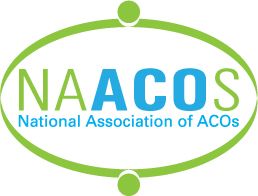
Senate Introduces Bill to Extend 5% Incentives for APMs

The bipartisan bill would help lower Medicare costs and improve quality of care, according to the National Association of ACOs.
A version of this article originally
A bipartisan Senate bill has been introduced that would provide a two-year extension to the 5% incentives for alternative payment models that will
The bill, called the Value Act, would not only extend the incentives, but also make changes to CMS’s value-based care programs, including:
- Gives CMS the authority to adjust the thresholds to secure those incentive payments, allowing more opportunities to bring rural, underserved, primary care or specialty practices into APMs;
- Eliminates the artificial revenue-based distinction that disadvantages rural and safety net providers that are critical to improving access to care and improving health equity;
- Creates a more fair, more transparent process to set financial spending targets so that ACOs are not penalized for their own success;
- Establishes a voluntary track for ACOs to take on higher levels of risk;
- Provides technical assistance for clinicians new to APMs; and
- Studies ways to increase parity between APMs in traditional Medicare and Medicare Advantage so that both programs are attractive and sustainable options.
“ACOs [accountable care organizations] have provided a tremendous return on Congress’s investment, generating billions in savings already,” said National Association of ACOs (NAACOS) President and CEO Clif Gaus, in a statement. “Lawmakers would be wise to further incentivize value-based care, which has been shown to provide better patient care at lower costs. Lawmakers can start by extending Medicare’s incentives for participating in value-based care models. Continuing these incentives means that clinicians are able to reinvest in improving care and enhancing beneficiary services.”
A companion House bill (
According to NAACOS, ACOs have saved Medicare more than $22 billion in gross savings and nearly $9 billion in net savings since 2012. Importantly,
CMS released data in September showing that ACOs in the Medicare Shared Savings Program (MSSP)
Compared with similarly sized clinician groups not participating in the MSSP, ACOs had statistically significant higher performance for quality measures related to diabetes and blood pressure control, breast and colorectal cancer screening, tobacco screening and smoking cessation, and depression screening and follow-up.
“The Medicare Shared Savings Program helps millions of people with Medicare experience coordinated health care while also reducing costs for the Medicare program,” CMS Administrator Chiquita Brooks-LaSure,
Newsletter
Stay ahead of policy, cost, and value—subscribe to AJMC for expert insights at the intersection of clinical care and health economics.









